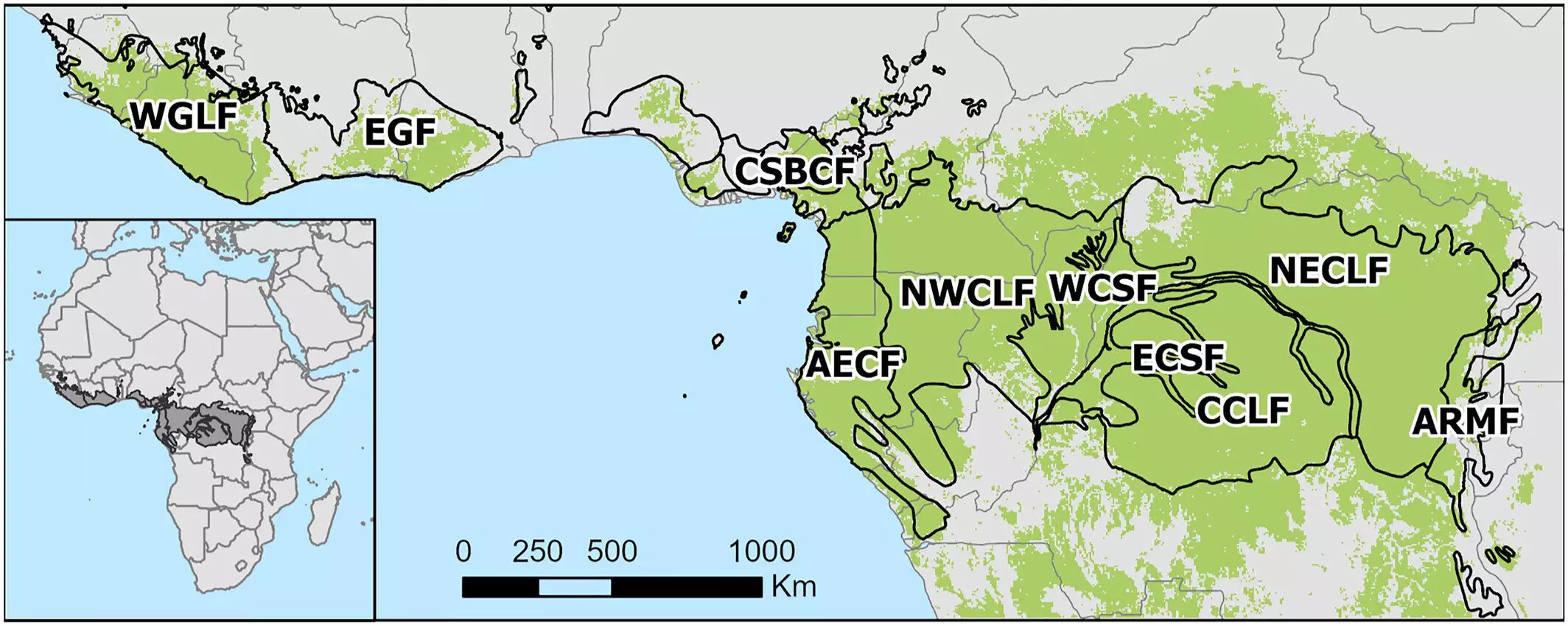The recent large-scale analysis of fire patterns in West and Central Africa’s wet, tropical forests reveals alarming trends that are likely to have significant implications for the future. The study highlights a concerning increase in the number of active fires in the region over an 18-year period, particularly in the Congo Basin. These increases are attributed to a combination of factors, including hot, dry conditions, and human activities such as deforestation. The findings of the study suggest that the trend of increasing forest fires is expected to continue, raising important questions about the impact of climate change on wet forest ecosystems.
The Shift in Perspective
For decades, scientists have overlooked the role of fires in wet, tropical forests in Africa, assuming that they were not as significant as in drier woodlands and savannas. However, recent research, including the study in question, challenges this perception. The lead researcher, Michael Wimberly, emphasizes the importance of considering wet forests as vulnerable to fires and recognizing fire as a critical consequence of climate change in tropical ecosystems. The findings underscore the need for a shift in perspective and a deeper understanding of the factors contributing to the increased fire activity in these regions.
Unlike previous studies that focused on small areas or used limited datasets, Wimberly’s study offers the first comprehensive assessment of fire patterns in wet African forests. By analyzing satellite imagery from 2003 to 2021, the researchers were able to track active fires across Western and Central Africa, with a particular focus on the Congo Basin. The results of the study indicate a clear increase in fire frequency over time, with the most significant changes observed in the Northwest Congolian Lowland Forests. The researchers also found a strong correlation between forest loss and fire activity, highlighting the impact of deforestation on creating conditions conducive to fires.
The Role of Climate Change
One of the key findings of the study is the association between fire occurrences and climate variables, such as high temperatures and vapor pressure deficit. The researchers identified a stark correlation between fires and the 2015-2016 “super El Niño,” which brought extreme heat and drought to tropical Africa. These climate events exacerbate fire risk in forests, emphasizing the need to address not only human activities but also the broader influence of climate change on fire activity. The study underscores the critical insights provided by understanding how climate change could shape the future of African forest fires, particularly during extreme weather events.
The implications of the study extend beyond the immediate impact of forest fires on the ecosystem. The researchers highlight the urgent need to control fires at the edges of forests to prevent harmful feedback loops that can exacerbate fire risk. A forest that has been affected by fire is more likely to experience reduced canopy cover and increased fragmentation, further increasing its vulnerability to future fires. Wimberly emphasizes that tropical forest fires are likely to become increasingly important in the future, underscoring the need for proactive measures to mitigate their impact.
The study sheds light on the understudied issue of forest fires in wet, tropical African forests, challenging traditional assumptions and highlighting the urgent need for further research and conservation efforts. By understanding the complex interplay between climate change, human activities, and natural factors in driving fire activity, we can work towards safeguarding these vital ecosystems for future generations.


Leave a Reply